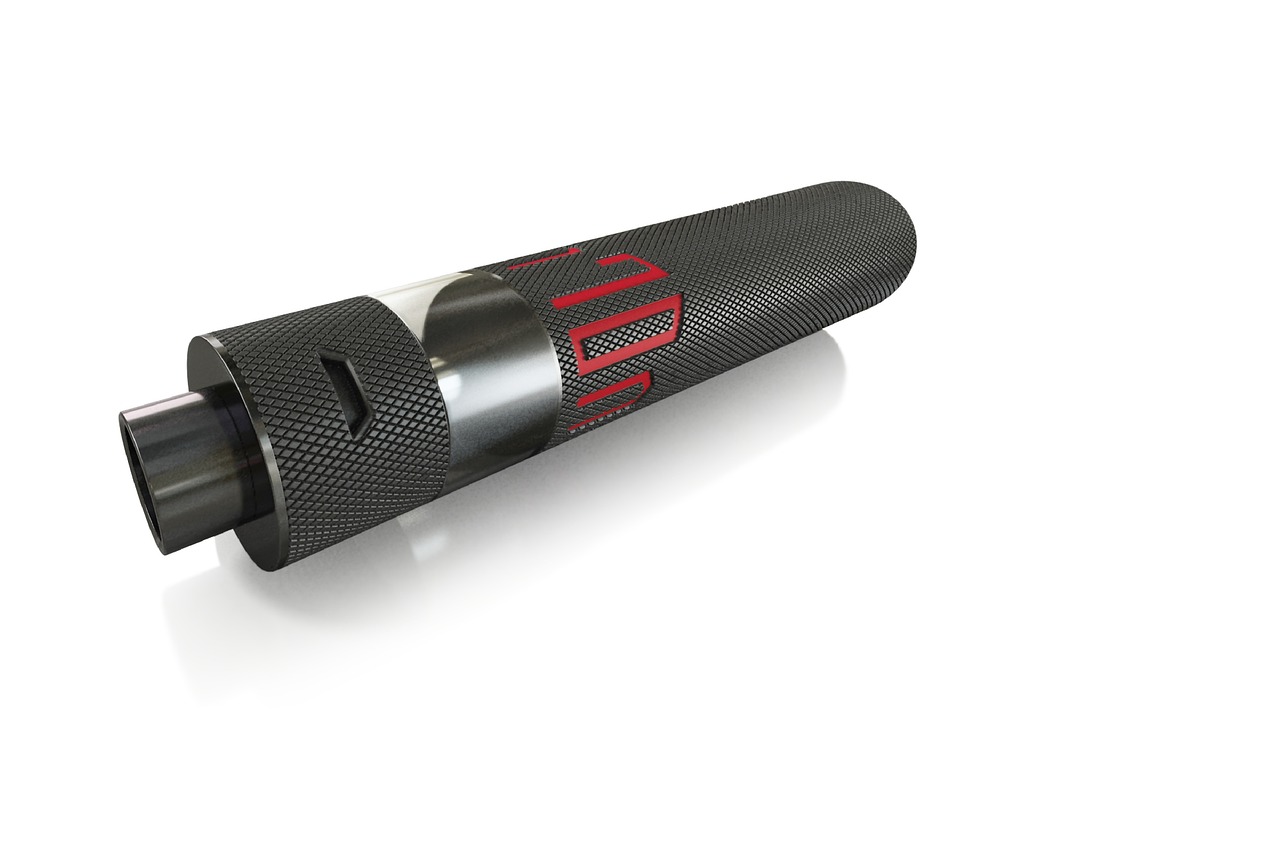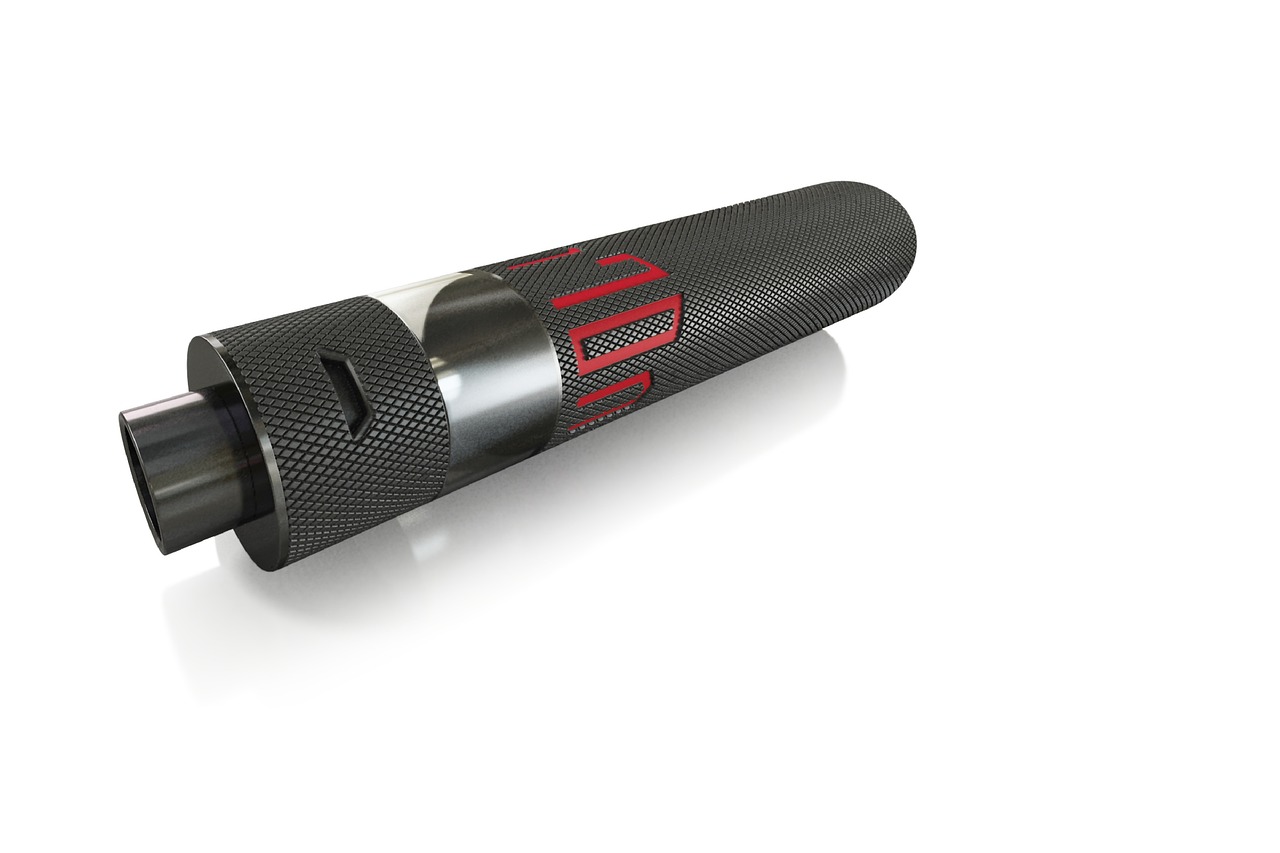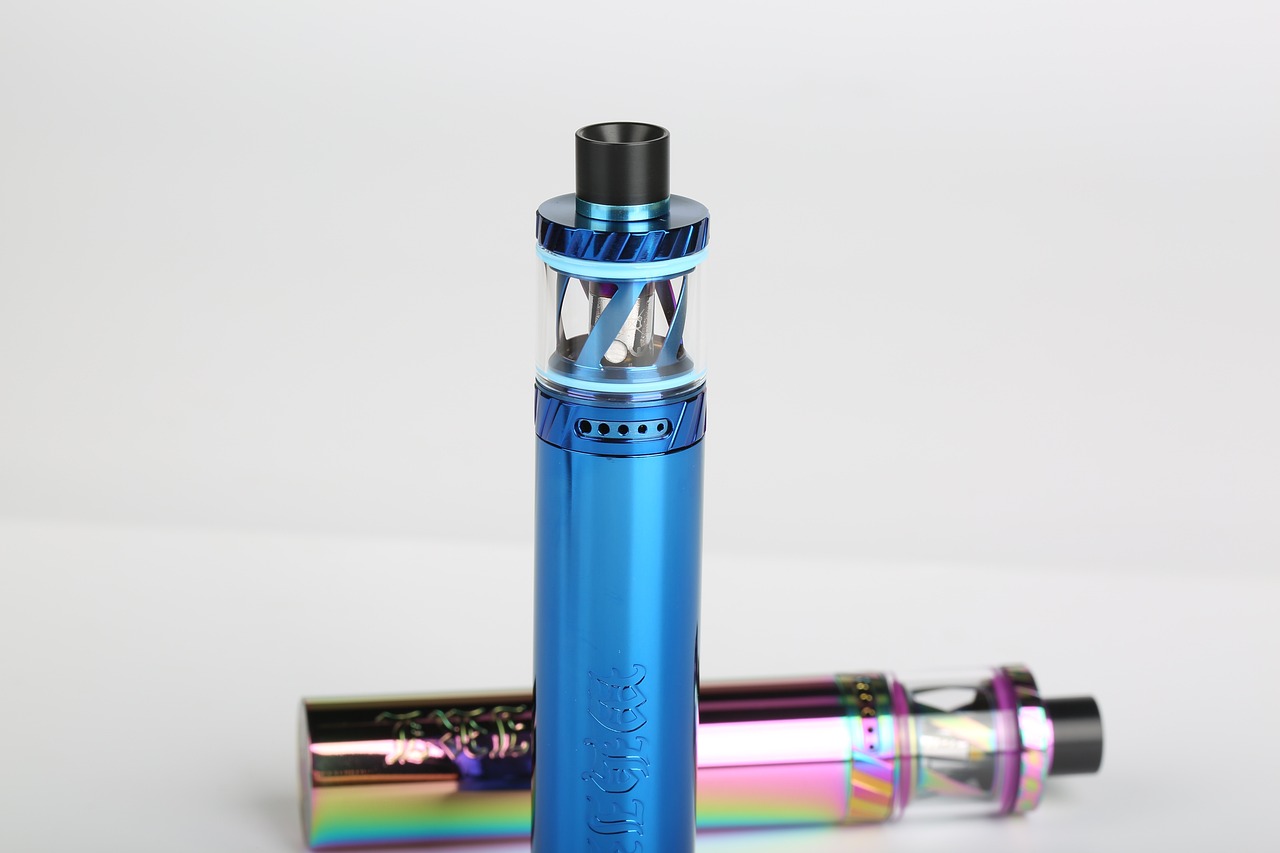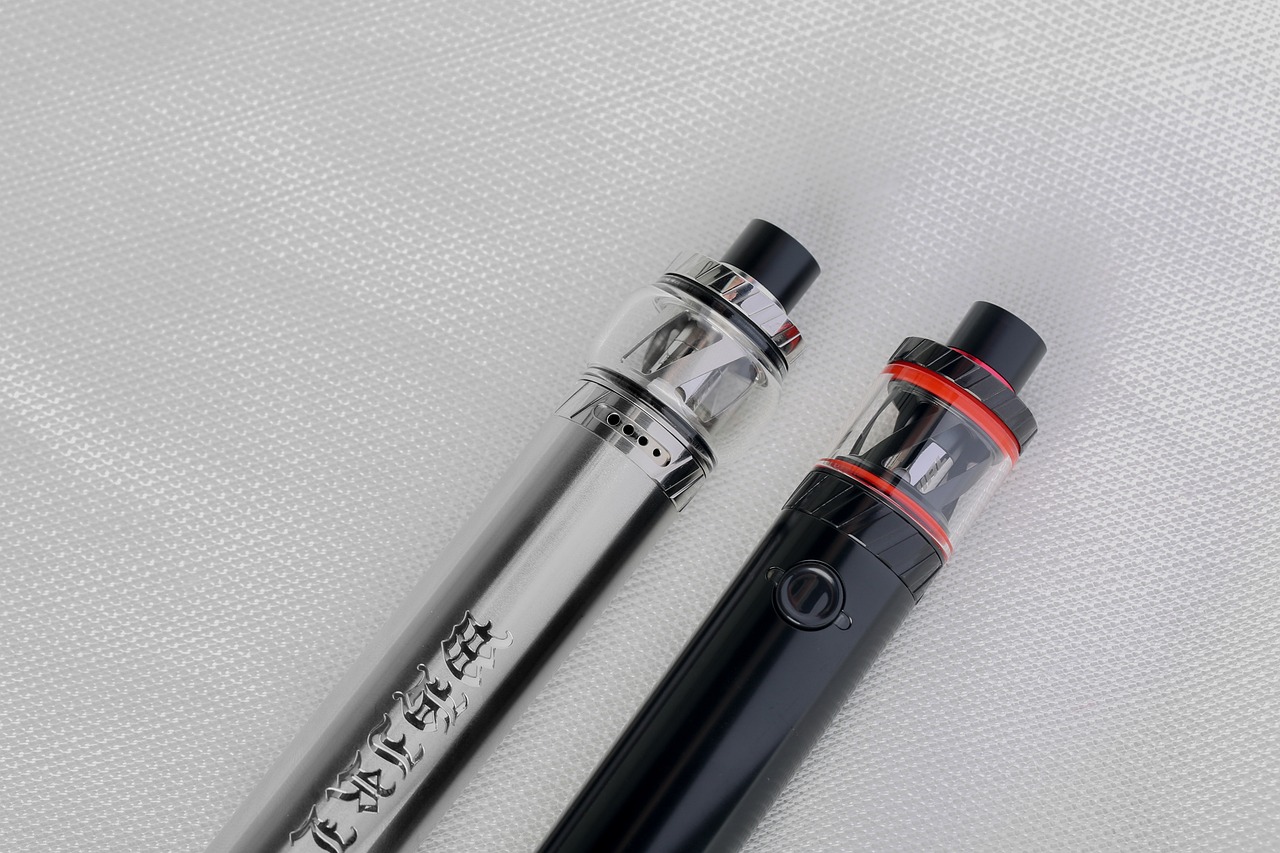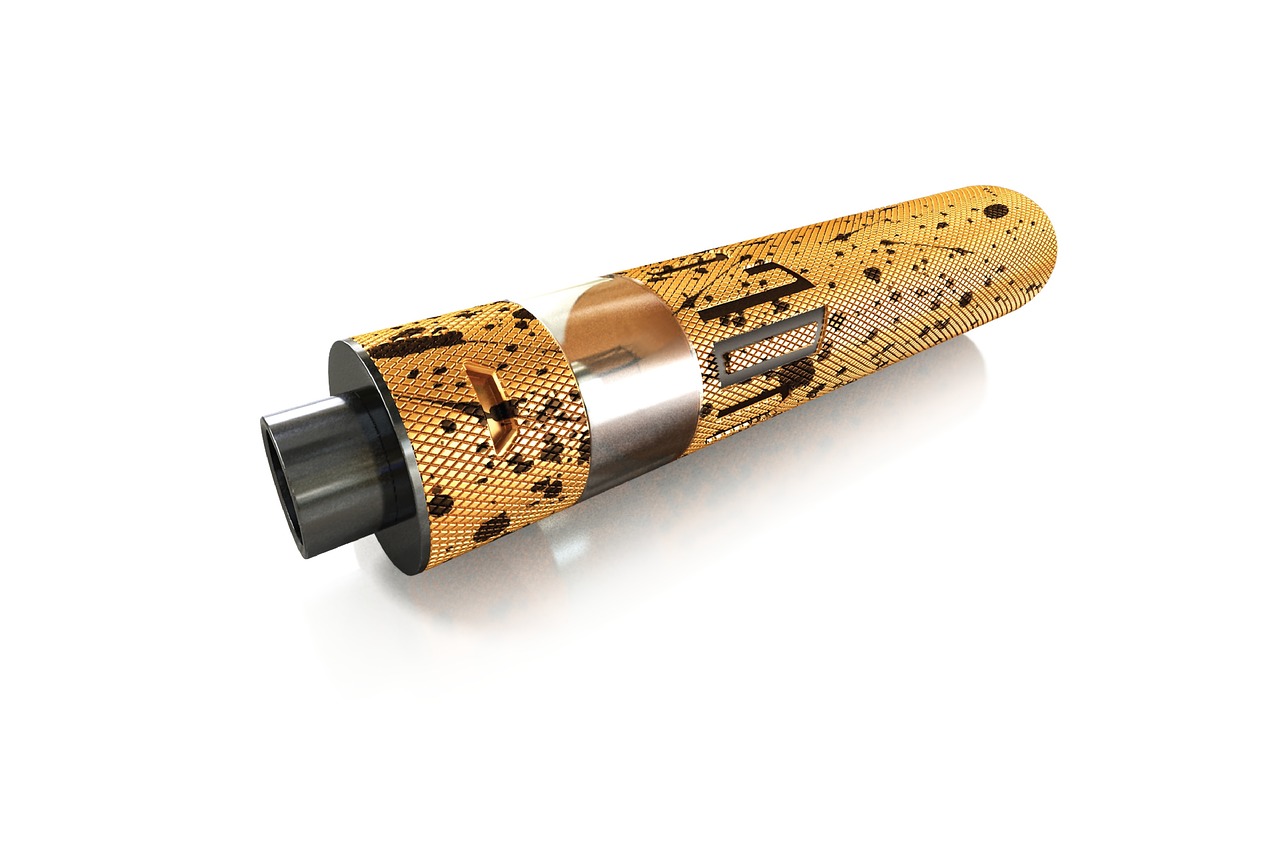Vaping and running have become increasingly intertwined in discussions about athletic performance, particularly in the realm of endurance running. This article investigates the complex relationship between nicotine consumption and athletic performance, focusing on how vaping may influence runners and their endurance capabilities.
Vaping refers to the act of inhaling vapor produced by electronic cigarettes or similar devices. Unlike traditional smoking, which involves burning tobacco, vaping utilizes a liquid solution that typically contains nicotine, flavorings, and other chemicals. Understanding the mechanics of vaping is essential to grasp its potential effects on athletic performance and endurance.
Nicotine is a potent stimulant that affects various bodily functions. It can lead to increased heart rate and blood pressure, which may initially seem beneficial for athletic performance. However, these effects can also strain the cardiovascular system, especially during intense physical activity. Runners should be aware of how nicotine impacts cardiovascular health, metabolism, and overall physical performance, which are crucial for optimal running.
The influence of vaping on athletic performance is a topic of ongoing debate. Some studies suggest that nicotine may enhance certain aspects of performance, such as focus and alertness. However, other research indicates that the negative effects on lung capacity and oxygen uptake could outweigh any potential benefits, especially for endurance athletes.
Short-term nicotine consumption can lead to various physiological changes. For instance, an increased heart rate may provide a temporary boost in energy, but this can also lead to quicker fatigue during prolonged exercise. Runners may experience heightened alertness, but the potential for increased anxiety and decreased stamina must also be considered.
Long-term vaping may lead to chronic health issues, particularly concerning lung function and cardiovascular health. Studies have shown that consistent exposure to the chemicals in vape pens can result in decreased lung capacity, which is detrimental for runners. As endurance athletes rely heavily on their respiratory systems, the long-term implications of vaping could be significant.
Nicotine also affects mood and motivation, which can be crucial for athletes. Some runners report increased focus and reduced stress levels when using nicotine, while others may experience heightened anxiety. Understanding these psychological effects is essential for athletes looking to optimize their training and performance.
Managing stress is vital for athletes, and nicotine may offer both benefits and drawbacks in this area. While some may find that nicotine helps in stress reduction, it can also lead to dependency and withdrawal symptoms, which can negatively impact performance.
Recovery is a critical aspect of any athlete’s regimen. Nicotine and vaping can influence recovery times, muscle repair, and overall athletic performance. Research suggests that nicotine may impair blood flow, which is essential for muscle recovery. Runners should consider the potential negative impact of vaping on their recovery process.
For those looking to avoid nicotine while still achieving focus and energy, there are healthier alternatives. Options such as natural supplements, proper hydration, and balanced nutrition can support endurance and performance without the risks associated with vaping.
Insights from sports scientists and health professionals provide a balanced perspective on vaping and running. Many experts caution against the use of nicotine in any form for athletes, emphasizing the importance of maintaining optimal health for peak performance. Understanding the implications of nicotine use is essential for endurance athletes aiming for long-term success.

What is Vaping and How Does It Work?
Vaping has become a popular alternative to traditional smoking, particularly among younger generations. Understanding what vaping is and how it works is crucial for anyone considering its implications, especially athletes who rely on optimal performance levels. Vaping involves the use of electronic cigarettes or similar devices that heat a liquid, known as e-liquid or vape juice, to create a vapor that is inhaled. This vapor typically contains a mixture of nicotine, flavorings, and other chemicals.
At its core, vaping operates using a simple mechanism. When the device is activated, a battery powers a heating element, which heats the e-liquid. This process transforms the liquid into vapor, which the user inhales. Unlike traditional cigarettes, which burn tobacco, vaping devices do not produce smoke but rather a vapor that some users claim is less harmful. However, the safety of vaping is still under scrutiny, especially concerning its effects on athletic performance.
- Nicotine: The primary addictive substance found in tobacco, which can affect heart rate and blood pressure.
- Propylene Glycol: A common base ingredient that helps produce vapor.
- Vegetable Glycerin: A thicker base that can enhance vapor production and provide a smoother inhale.
- Flavorings: Various additives that give e-liquids their taste, ranging from fruity to dessert-like flavors.
One of the key differences between vaping and smoking is the absence of combustion in vaping. Traditional cigarettes burn tobacco, releasing harmful tar and a multitude of toxic chemicals into the lungs. In contrast, vaping produces vapor, which some argue contains fewer harmful substances. However, research indicates that vaping is not without risks. Many e-liquids contain harmful chemicals that can affect lung health and overall physical performance.
For athletes, particularly runners, understanding how vaping works is vital. The inhalation of vapor can lead to various physiological responses that may impact endurance and performance. Nicotine, for example, is known to have stimulant effects, which can temporarily enhance alertness and concentration. However, it can also lead to increased heart rate and blood pressure, which could hinder performance during intense physical activities.
Furthermore, the inhalation of vapor can affect lung capacity and function. Athletes depend on efficient oxygen exchange for peak performance, and any impairment in lung function could significantly impact endurance levels. Therefore, it is crucial for athletes to weigh the potential benefits and drawbacks of vaping.
Experts in sports science suggest that while vaping may seem like a less harmful alternative to smoking, it still poses risks. Many studies indicate that nicotine can impair cardiovascular health, which is essential for endurance sports like running. Additionally, the long-term effects of vaping on lung health are still being researched, leaving many questions unanswered.
In summary, understanding the mechanics of vaping is essential for athletes, as it can have profound implications for their performance and health. By being informed, athletes can make better choices that align with their training and performance goals.

How Does Nicotine Affect the Body?
Nicotine is a powerful stimulant that can significantly influence various bodily functions, particularly in athletes such as runners. Understanding how nicotine affects the body is critical for optimizing performance and ensuring long-term health. This section will delve into the multifaceted effects of nicotine on cardiovascular health, metabolism, and overall physical performance, all of which are essential for runners.
Nicotine has a profound impact on the cardiovascular system. It causes an increase in heart rate and blood pressure, which can provide a temporary boost in performance. However, these effects come with potential risks. Chronic exposure to nicotine can lead to vascular damage and increase the risk of heart disease. For runners, maintaining optimal cardiovascular health is crucial, as it directly affects endurance and recovery.
Nicotine also plays a role in metabolic processes. It can enhance the body’s ability to burn fat, which may seem beneficial for weight management. However, this effect can be misleading. The increased metabolic rate caused by nicotine can lead to muscle loss and hinder overall athletic performance. Runners need to ensure they are fueling their bodies adequately to support their training and recovery.
When it comes to physical performance, nicotine can have both positive and negative effects. On one hand, it may enhance focus and reduce perceived exertion, allowing runners to push harder during training or competition. On the other hand, the increased heart rate and blood pressure can lead to early fatigue and decreased stamina over time. Understanding these dynamics is essential for runners looking to optimize their performance.
Beyond the physical, nicotine also affects the psychological aspects of performance. It can enhance mood and concentration, which may help runners during training. However, it can also lead to increased anxiety and dependence, creating a cycle that may ultimately hinder performance. Athletes should weigh the psychological benefits against the potential drawbacks when considering nicotine use.
Recovery is a vital component of any training regimen. Nicotine can interfere with the body’s natural recovery processes by constricting blood vessels and reducing blood flow to the muscles. This can impede muscle repair and prolong recovery times, making it harder for runners to bounce back after intense workouts. Runners should consider these effects when evaluating their use of nicotine.
For those looking to enhance their performance without the risks associated with nicotine, there are healthier alternatives available. Options such as caffeine, adaptogens, and proper hydration can provide the energy boost needed for endurance without the harmful side effects of nicotine. Incorporating these alternatives can help runners maintain their health while optimizing performance.
Experts in sports science emphasize the importance of understanding the dual nature of nicotine’s effects. While it may offer short-term benefits, the long-term consequences can be detrimental to an athlete’s health and performance. Athletes are encouraged to seek guidance from health professionals when considering nicotine use and to focus on sustainable practices that support their goals.

Can Vaping Impact Athletic Performance?
The relationship between vaping and athletic performance, particularly in endurance sports like running, has garnered significant attention in recent years. As more athletes turn to vaping, understanding its potential impacts on performance is crucial. This article delves into the complexities of how vaping, specifically through nicotine consumption, can affect runners.
The influence of vaping on athletic performance is a subject of ongoing debate among researchers and health professionals. Numerous studies have sought to uncover the effects of nicotine—a primary component of most vaping products—on endurance and overall athletic capabilities. Here, we explore findings from various studies and expert opinions.
Research indicates that nicotine can have both positive and negative effects on athletic performance. Some studies suggest that nicotine may enhance performance due to its stimulant properties, which can lead to increased alertness and reduced perception of effort. However, these benefits must be weighed against potential health risks.
In the short term, nicotine consumption can result in increased heart rate and elevated blood pressure. These physiological responses can affect a runner’s performance during training and competitions. For instance, while some athletes may experience a temporary boost in energy, the increased cardiovascular strain can lead to premature fatigue.
Long-term vaping poses significant health risks, particularly concerning lung capacity and cardiovascular health. Chronic exposure to the chemicals found in vape products can lead to respiratory issues, which are detrimental to endurance athletes. Studies have shown that long-term nicotine use may result in decreased lung function, making it harder for runners to maintain their stamina over extended periods.
Nicotine is known to influence mood and motivation. For runners, this can manifest in various ways. Some athletes report increased focus and a heightened sense of motivation, while others may experience anxiety or stress. Understanding these psychological effects is essential for athletes considering vaping as a performance aid.
Many athletes use nicotine as a means to manage stress. While it may provide temporary relief, reliance on nicotine can lead to dependency and withdrawal symptoms, which may negatively impact training and performance. Athletes should consider healthier alternatives for stress management that do not involve nicotine.
Recovery is critical for any athlete, and nicotine can play a role in this process. Research indicates that nicotine may impair muscle repair and recovery times, potentially hindering an athlete’s ability to train effectively. Understanding how vaping affects recovery is vital for runners aiming to optimize their performance.
For those looking to enhance focus and energy without the downsides of nicotine, there are numerous alternatives available. Natural supplements, hydration strategies, and proper nutrition can all contribute to improved endurance without the risks associated with vaping.
Insights from sports scientists and health professionals provide a balanced perspective on vaping and running. Experts generally advise against the use of nicotine for performance enhancement, citing the long-term health risks and potential for addiction. They encourage athletes to seek out safer, more effective methods for improving performance and endurance.
Short-Term Effects of Nicotine on Performance
Short-term nicotine consumption can have significant physiological effects that may impact a runner’s performance during both training and competition. When nicotine is inhaled or consumed, it enters the bloodstream and acts as a stimulant. This leads to an increase in heart rate and blood pressure, which can have various implications for athletic performance.
One of the primary concerns for runners is how elevated heart rate affects endurance. When a runner’s heart rate increases due to nicotine use, the body must work harder to deliver oxygen to the muscles. This can lead to premature fatigue, making it challenging to maintain optimal performance levels. Furthermore, the increase in blood pressure can strain the cardiovascular system, potentially increasing the risk of injury or health complications, especially during high-intensity runs.
Additionally, nicotine can affect the body’s metabolism. It is known to enhance the release of adrenaline, which can temporarily boost energy levels. However, this effect is short-lived and may lead to a crash in energy levels afterward. For runners, this means that while they might experience a brief period of heightened alertness, it may be followed by fatigue that hampers their ability to sustain performance over longer distances.
Moreover, the respiratory system is crucial for runners. Nicotine can constrict airways, reducing airflow and oxygen intake. This is particularly concerning for endurance athletes who rely on optimal lung function to perform at their best. The combination of increased heart rate, elevated blood pressure, and potential respiratory issues can severely limit a runner’s ability to train effectively or compete successfully.
To illustrate these points, consider the following table that summarizes the short-term effects of nicotine on runners:
| Effect | Implication for Runners |
|---|---|
| Increased Heart Rate | Higher energy expenditure, risk of fatigue |
| Elevated Blood Pressure | Strain on cardiovascular system, potential for injury |
| Reduced Airflow | Decreased oxygen intake, compromised endurance |
| Metabolic Boost | Temporary energy spike followed by fatigue |
In summary, while some may perceive short-term nicotine consumption as a way to enhance performance, the reality is that the negative effects on cardiovascular health and endurance capabilities can outweigh any potential benefits. Runners should carefully consider these factors when assessing their training and competition strategies. As with any substance, moderation and awareness of its implications are key to maintaining optimal performance and health.
Long-Term Consequences of Vaping for Athletes
Long-term vaping has emerged as a significant concern, particularly among athletes, including runners. While many may perceive vaping as a less harmful alternative to traditional smoking, the reality is that chronic health issues can develop over time. This section will explore the potential long-term effects of nicotine and vaping on lung capacity and cardiovascular health for runners.
Vaping introduces various chemicals into the lungs, which can lead to inflammation and damage over time. Studies have shown that prolonged exposure to these substances can impair lung function, a critical factor for runners who rely on efficient breathing for endurance. The inhalation of vapor can cause:
- Reduced airflow: Chronic vaping may lead to conditions such as bronchitis, which can restrict airflow and hinder performance.
- Decreased lung elasticity: This can result in a diminished ability to expand the lungs fully, affecting oxygen intake during runs.
- Increased mucus production: Excessive mucus can obstruct airways, making it difficult for runners to breathe comfortably.
The cardiovascular system is vital for runners, as it is responsible for delivering oxygen-rich blood to muscles. Nicotine, a primary component of vaping products, has several detrimental effects on heart health, including:
- Increased heart rate: Nicotine stimulates the heart, leading to a higher resting heart rate, which can strain the cardiovascular system.
- Elevated blood pressure: Long-term vaping can contribute to hypertension, increasing the risk of heart disease.
- Vascular constriction: Nicotine can cause blood vessels to narrow, limiting blood flow during physical activity.
For runners, endurance is crucial for performance. The long-term effects of vaping can significantly diminish an athlete’s ability to perform at their best. Research indicates that:
- Reduced lung capacity and cardiovascular issues can lead to early fatigue during runs.
- Impaired oxygen delivery can affect overall stamina, making it challenging to maintain pace.
- Increased recovery time may result from the body’s struggle to heal and adapt due to the negative impacts of nicotine and other chemicals.
For those who currently vape, considering cessation is essential for long-term health and performance. Here are some strategies:
- Seek support: Many resources are available for quitting vaping, including counseling and support groups.
- Consider alternatives: Healthier options, such as natural supplements or lifestyle changes, can help boost endurance without the risks associated with nicotine.
- Focus on nutrition: A balanced diet rich in antioxidants can help combat some of the oxidative stress caused by vaping.
In conclusion, the long-term consequences of vaping can pose significant risks to runners, affecting both lung capacity and cardiovascular health. By understanding these risks and taking proactive steps, athletes can work toward maintaining their health and optimizing their performance.

What Are the Psychological Effects of Nicotine on Runners?
Nicotine is often associated with various psychological effects that can significantly influence a runner’s training and performance. Understanding these effects is crucial for athletes who may consider using nicotine, whether through vaping or other means. This section will explore how nicotine impacts mood, motivation, and overall mental state, particularly in the context of endurance running.
Does Nicotine Enhance Focus?
Many runners report experiencing improved focus after nicotine consumption. This stimulant can lead to heightened alertness, which may be beneficial during long training sessions or competitions. Increased concentration allows athletes to maintain a steady pace and stay mentally engaged, especially during monotonous runs. However, it is essential to recognize that this enhanced focus can come at a cost.
Can Nicotine Cause Anxiety?
While some athletes may find that nicotine helps them concentrate, it can also induce feelings of anxiety in others. This duality makes nicotine a double-edged sword for runners. Increased heart rate and heightened arousal can lead to a state of nervousness, which may hinder performance rather than enhance it. Runners must weigh these potential risks against the benefits of improved focus.
Impact on Motivation
Nicotine can serve as a motivator for some individuals, providing a temporary boost in energy and drive. However, this effect can vary widely among individuals. Some runners may find that nicotine helps them push through tough workouts, while others may experience a drop in motivation as the stimulating effects wear off. This inconsistency can lead to a reliance on nicotine, which is not ideal for long-term athletic success.
How Does Nicotine Affect Stress Levels?
- Short-Term Relief: Many users report that nicotine provides short-term relief from stress, which can be appealing for athletes facing high-pressure situations.
- Long-Term Consequences: Over time, reliance on nicotine for stress management can lead to increased anxiety and dependency, resulting in adverse effects on mental health.
Understanding the Balance
For runners, finding a balance between the potential benefits and drawbacks of nicotine is crucial. While it may enhance focus and provide temporary motivation, the risk of increased anxiety and dependency cannot be ignored. It is essential for athletes to be aware of their mental state and how nicotine affects their performance.
What Are Healthier Alternatives?
For those looking to enhance their focus and motivation without the potential pitfalls of nicotine, there are several healthier alternatives. These may include:
- Mindfulness and Meditation: Techniques such as mindfulness can help runners improve focus and reduce anxiety without the use of substances.
- Proper Nutrition: A balanced diet rich in nutrients can provide sustained energy and mental clarity, supporting overall performance.
- Physical Conditioning: Regular training and conditioning can enhance both physical and mental resilience, reducing the need for external stimulants.
In conclusion, while nicotine can influence mood and motivation in runners, the psychological effects vary widely among individuals. Athletes must carefully consider these factors and explore healthier alternatives to optimize their performance and mental well-being.
Nicotine and Stress Management in Athletes
Understanding how nicotine affects stress levels is crucial for athletes, especially for those involved in endurance sports like running. The relationship between nicotine and stress management is complex, and it is essential to explore both the potential benefits and drawbacks of using nicotine as a tool for managing stress.
How Does Nicotine Affect Stress Levels?
Nicotine is known to have stimulating effects on the central nervous system. When consumed, it can lead to a temporary increase in dopamine levels, which may create feelings of pleasure and relaxation. This can be particularly appealing for athletes who experience high levels of stress during competition or intense training. However, the effects are often short-lived, leading to a cycle of dependency that can ultimately increase stress levels over time.
Potential Benefits of Nicotine for Runners
- Increased Focus: Some athletes report enhanced concentration and focus when using nicotine, which can be beneficial during long training sessions or competitive events.
- Reduced Perception of Fatigue: Nicotine may help in diminishing the perception of effort, allowing runners to push through challenging workouts.
- Temporary Mood Enhancement: The initial mood-lifting effects of nicotine can help athletes feel more motivated, particularly when facing stressful situations.
Drawbacks of Using Nicotine for Stress Management
- Increased Anxiety: While nicotine can initially reduce stress, it may lead to heightened anxiety levels once its effects wear off, creating a cycle of dependence.
- Health Risks: Long-term nicotine use can lead to serious health concerns, including cardiovascular issues and respiratory problems, which are detrimental to athletic performance.
- Impact on Recovery: Nicotine may interfere with the body’s recovery processes, affecting muscle repair and overall endurance.
Expert Opinions on Nicotine Use in Sports
Many sports scientists emphasize the importance of understanding the dual nature of nicotine’s effects. While some may find temporary relief from stress, the long-term consequences can outweigh these benefits. Athletes are encouraged to seek healthier stress management techniques, such as mindfulness, meditation, and proper nutrition.
Alternatives to Nicotine for Stress Management
For athletes seeking to manage stress without the risks associated with nicotine, several alternatives can be effective:
- Mindfulness Meditation: Practicing mindfulness can help athletes stay present and reduce anxiety.
- Physical Activity: Engaging in regular exercise, such as yoga or strength training, can effectively alleviate stress.
- Breathing Techniques: Simple breathing exercises can help calm the mind and body before competitions.
In conclusion, while nicotine may offer some short-term benefits for stress management among athletes, the potential drawbacks, including health risks and increased anxiety, warrant careful consideration. It is essential for runners to explore healthier alternatives that promote both mental well-being and athletic performance.
How Does Vaping Affect Recovery Time?
Recovery is a crucial component of an athlete’s training regimen, significantly influencing performance and overall health. Many athletes are turning to vaping, often under the impression that it may enhance their focus or provide a quick energy boost. However, the implications of nicotine and vaping on recovery times and muscle repair are complex and warrant careful examination.
Nicotine’s Impact on Muscle Repair
Research indicates that nicotine can hinder the body’s natural recovery processes. This stimulant affects blood flow and oxygen delivery to muscles, which are essential for effective recovery. Inadequate blood circulation can slow down the muscle repair process, leading to prolonged soreness and delayed recovery times. Athletes who vape may find that their muscles take longer to recover after intense workouts, which can ultimately affect their training schedules and performance in competitions.
Inflammation and Recovery
Another critical aspect of recovery is managing inflammation. Nicotine has been shown to increase levels of inflammatory markers in the body. Higher inflammation can contribute to muscle damage and fatigue, making it harder for athletes to bounce back after strenuous activity. This can lead to a vicious cycle where athletes feel compelled to push harder in training, only to face further setbacks in recovery.
Hydration and Nutrient Absorption
Vaping can also negatively impact an athlete’s hydration levels. Dehydration can impair muscle function and recovery, as water is essential for nutrient transport and metabolic processes. Furthermore, nicotine may affect the body’s ability to absorb vital nutrients, such as proteins and electrolytes, which are crucial for muscle repair and recovery. Athletes who vape might not only be compromising their hydration but also their overall nutritional status, both of which are vital for effective recovery.
Sleep Quality and Recovery
Quality sleep is another critical factor in recovery. Nicotine is known to disrupt sleep patterns, leading to reduced sleep quality and duration. Poor sleep can hinder the body’s ability to recover, as most muscle repair and recovery processes occur during deep sleep stages. Athletes who use vaping as a means to cope with stress or anxiety may find themselves caught in a cycle of poor sleep and inadequate recovery.
Psychological Effects of Vaping on Recovery
The psychological aspects of recovery should not be overlooked. While some athletes may turn to vaping for its perceived stress-relieving properties, the reality is that nicotine can lead to increased anxiety and restlessness. This heightened stress may further complicate recovery efforts, as mental well-being is closely tied to physical performance. Athletes may find that their focus on recovery is diminished when they are dealing with the psychological effects of nicotine dependence.
Conclusion
In summary, while vaping may seem like an attractive option for some athletes, the evidence suggests that it can have detrimental effects on recovery time and overall athletic performance. By understanding the various ways in which nicotine and vaping can impede recovery—such as through impaired muscle repair, increased inflammation, hydration issues, disrupted sleep, and psychological stress—athletes can make more informed decisions about their health and training practices. Prioritizing recovery through healthier alternatives can lead to improved performance and long-term success in their athletic endeavors.
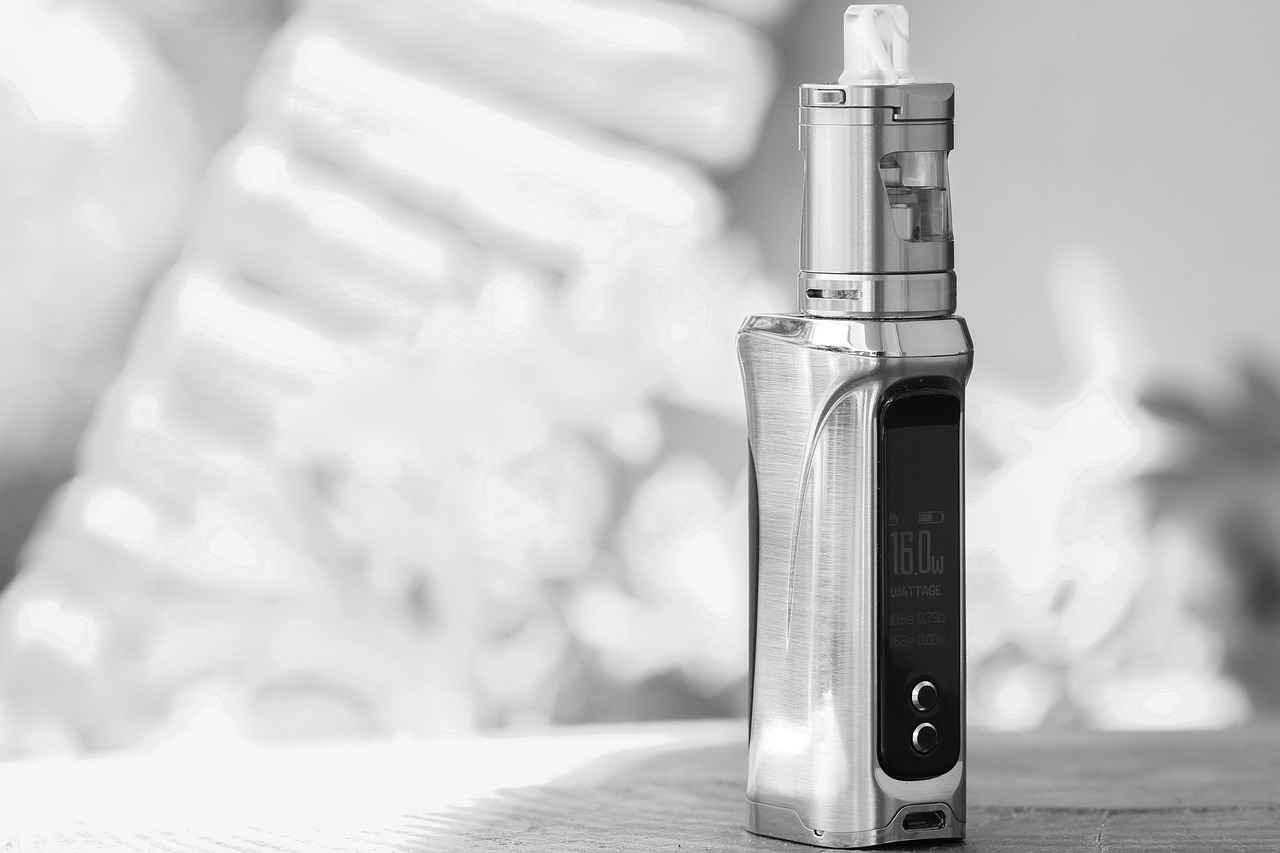
Are There Alternatives to Vaping for Runners?
For runners seeking to enhance their performance without the use of nicotine, there are numerous healthier alternatives available. These options not only support endurance but also promote overall well-being, allowing athletes to focus and maintain energy levels during their training sessions and competitions.
Many athletes turn to natural supplements that can help improve concentration and energy without the negative effects of nicotine. Some popular options include:
- Caffeine: Known for its ability to boost energy and focus, caffeine can enhance athletic performance by increasing endurance and reducing perceived effort.
- L-Theanine: Often paired with caffeine, L-Theanine promotes relaxation without drowsiness, helping runners maintain a calm focus during their runs.
- Rhodiola Rosea: This adaptogen is known to combat fatigue and improve mental performance, making it an excellent choice for endurance athletes.
Proper hydration and nutrition play a crucial role in maintaining energy levels and focus. Consider the following:
- Electrolyte Drinks: Staying hydrated with electrolyte-rich beverages can prevent fatigue and cramping, helping runners perform at their best.
- Balanced Meals: Consuming a diet rich in whole foods, including fruits, vegetables, lean proteins, and whole grains, can provide the necessary nutrients for sustained energy.
Incorporating mindfulness techniques into training can significantly enhance focus and mental resilience. Practices such as:
- Meditation: Regular meditation can improve concentration and reduce anxiety, allowing runners to stay present and focused during their runs.
- Visualization: Imagining successful runs can boost confidence and mental preparedness, which is essential for optimal performance.
Breathing exercises can also serve as a powerful tool for improving focus and energy levels. Techniques such as:
- Diaphragmatic Breathing: This method promotes better oxygen flow, enhancing endurance and reducing fatigue.
- Box Breathing: A technique used by athletes to calm the mind and improve focus, box breathing involves inhaling, holding, exhaling, and pausing for equal counts.
Engaging in cross-training can also be beneficial. Activities such as cycling, swimming, or yoga can improve overall fitness and endurance while providing mental breaks from the monotony of running. This variety can help maintain high energy levels and focus.
In conclusion, runners looking for alternatives to vaping and nicotine have a wealth of options at their disposal. By exploring natural supplements, maintaining proper nutrition and hydration, practicing mindfulness, and incorporating breathing techniques, athletes can achieve enhanced focus and energy. These healthier choices not only support endurance but also contribute to overall well-being, allowing runners to excel in their sport.

Expert Opinions: What Do Professionals Say?
As the debate surrounding vaping and its impact on athletic performance continues, insights from sports scientists and health professionals provide a balanced perspective on this issue. Understanding the implications of nicotine use for endurance athletes is crucial for those who are serious about their training and performance. This section synthesizes expert views to shed light on the potential effects of vaping on runners.
How Does Vaping Affect Athletic Performance?
Experts agree that the effects of vaping on athletic performance can vary widely among individuals. Dr. Emily Carter, a sports physiologist, emphasizes that while some athletes may perceive a temporary boost in focus and energy from nicotine, the long-term consequences can be detrimental. She notes, “Nicotine is a stimulant, which can lead to an initial increase in heart rate and alertness. However, this can also result in increased fatigue and decreased lung function over time, particularly for endurance athletes.”
What Are the Short-Term Effects of Nicotine on Runners?
According to Dr. Michael Chen, a cardiologist specializing in sports medicine, short-term nicotine use can lead to elevated heart rates and blood pressure, which may hinder a runner’s performance during training and competition. “While some may find that nicotine enhances their performance in the short term, the physiological stress it places on the cardiovascular system can lead to reduced stamina and endurance,” he explains.
Are There Long-Term Health Risks Associated with Vaping?
Health professionals warn that the long-term effects of vaping can pose serious risks. Dr. Sarah Thompson, a respiratory specialist, highlights that chronic exposure to nicotine and other chemicals found in vape products can lead to decreased lung capacity and chronic respiratory issues. “For runners, this is particularly concerning as optimal lung function is key to endurance,” she states. Studies indicate that long-term vaping may lead to inflammation in the airways, which can impair athletic performance.
What Psychological Effects Can Nicotine Have on Runners?
Nicotine’s impact is not limited to physical health; it also has psychological ramifications. Dr. Rachel Adams, a sports psychologist, notes that nicotine can influence mood and motivation. “While some athletes may use nicotine to cope with stress or anxiety, it can lead to increased dependency and withdrawal symptoms, which can negatively affect training and competition,” she warns. The balance between potential focus enhancement and the risk of anxiety is delicate and varies from athlete to athlete.
How Does Vaping Affect Recovery Times?
Recovery is a critical component of athletic training, and experts have differing opinions on how vaping impacts this process. Dr. James Lee, a nutritionist, suggests that nicotine may interfere with muscle repair and recovery. “Nicotine constricts blood vessels, which can reduce blood flow to muscles post-exercise, potentially prolonging recovery times,” he explains. This delay in recovery can hinder performance and increase the risk of injury.
What Alternatives Exist for Runners Seeking Focus and Energy?
For athletes looking to enhance their focus and energy without the risks associated with vaping, experts recommend exploring healthier alternatives. Dr. Laura Evans, a sports nutritionist, suggests natural supplements such as caffeine or adaptogens like rhodiola and ashwagandha as safer options. “These alternatives can provide the needed boost without the adverse effects linked to nicotine and vaping,” she notes.
In summary, while some may turn to vaping for perceived benefits, the consensus among health professionals is clear: the potential risks associated with nicotine use, particularly for endurance athletes, may outweigh the short-term gains. Athletes are encouraged to consider these insights carefully and make informed decisions regarding their health and performance.
Frequently Asked Questions
- Does vaping affect my running performance?
Yes, vaping can impact your running performance. Nicotine can increase heart rate and blood pressure, which may lead to decreased endurance during runs. It’s essential to consider how these effects might influence your training and competition.
- What are the short-term effects of nicotine on runners?
Short-term nicotine use can lead to increased alertness but may also cause heightened heart rate and anxiety. While some runners might feel a temporary boost, these effects can be detrimental during long runs or intense training sessions.
- Are there long-term health risks of vaping for athletes?
Absolutely. Long-term vaping can result in chronic health issues, including reduced lung capacity and cardiovascular problems. These risks can significantly affect an athlete’s overall performance and recovery times.
- Can nicotine help with stress management for runners?
Nicotine may provide short-term relief from stress, but it’s a double-edged sword. While it can enhance focus, it may also lead to increased anxiety and dependence, which can be counterproductive for athletes.
- What are some alternatives to vaping for improving focus?
There are several healthier alternatives to vaping, such as natural supplements like caffeine, meditation, and proper hydration. These options can help enhance focus and energy without the negative effects of nicotine.
- What do experts say about vaping and athletic performance?
Experts generally advise against vaping for athletes. They highlight the potential negative impacts on cardiovascular health and overall performance, emphasizing the importance of maintaining a healthy lifestyle for optimal athletic success.













